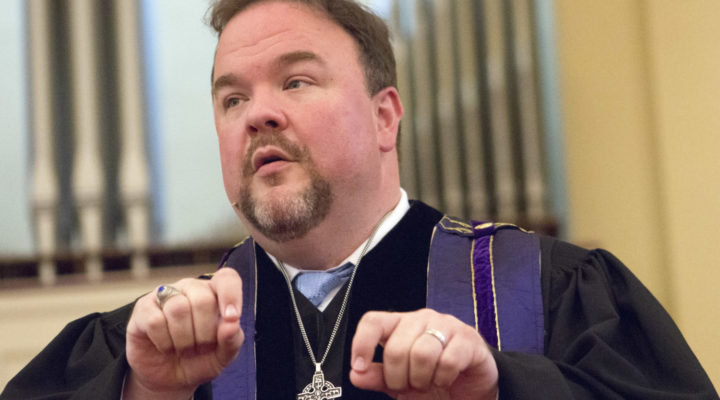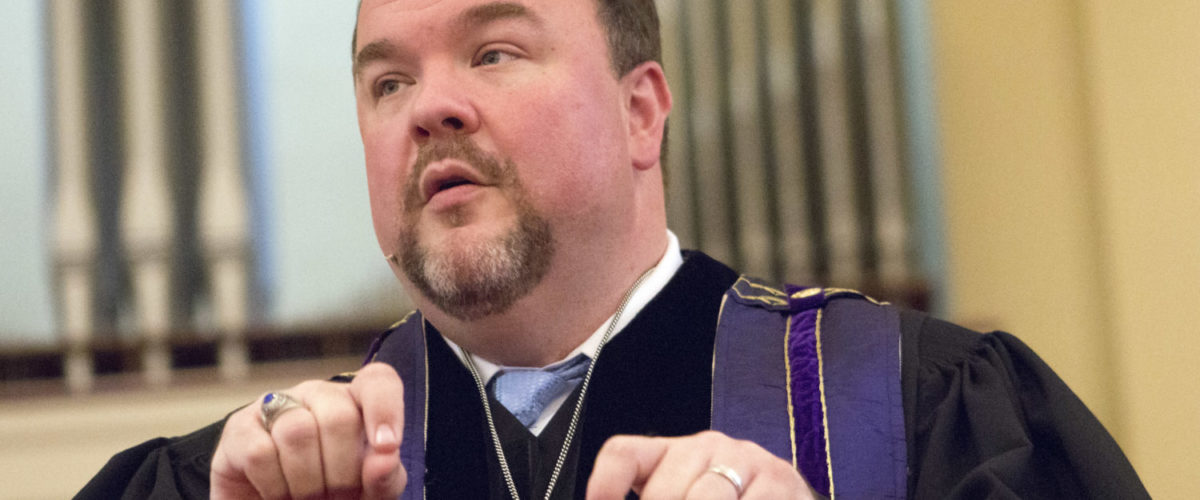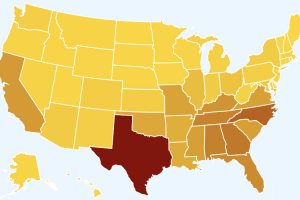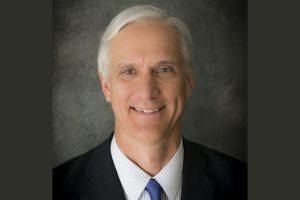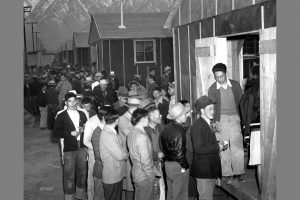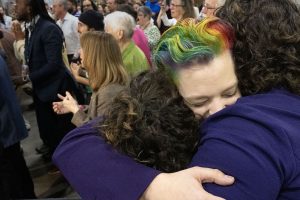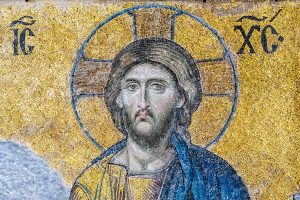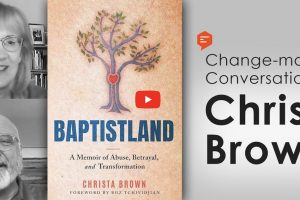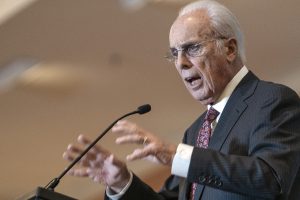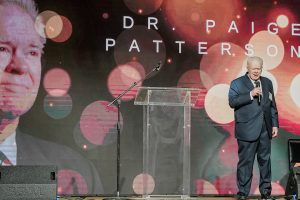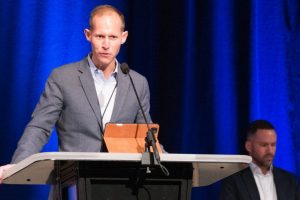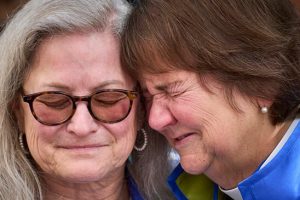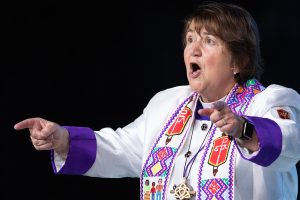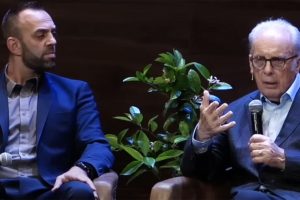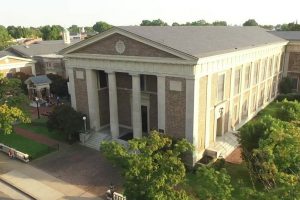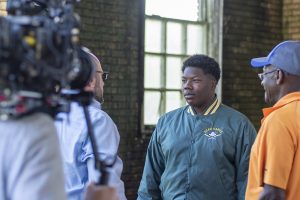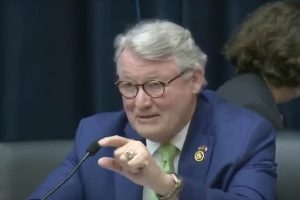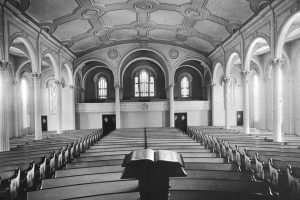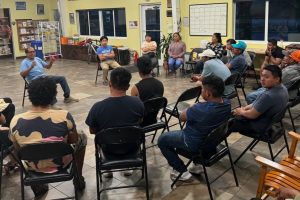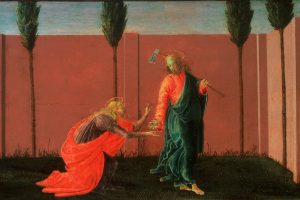 The day Jake Hall discovered 100.9 FM The Creek, he nearly plowed through a red light into oncoming traffic.
The day Jake Hall discovered 100.9 FM The Creek, he nearly plowed through a red light into oncoming traffic.
He hadn’t touched the radio dial once in six years of owning his Chevy Volt. But this Sunday morning was different. Brad Evans and Wes Griffith, two beloved entrepreneurs and music lovers, had just purchased a failing radio station and turned it into genuine Americana gold. As Hall approached the Spring Street bridge in Macon, Ga., to pass over the Ocmulgee River, Darrell Scott’s “Down to the River” suddenly broke through his humdrum focus with communion of another kind, Hall says.
“Now me and some buddies were down by the river,” Scott sings. “There were drinkers and dopers and abstainers by choice / There was red wine and white lines, blue smoke and good times / But when we all sang, we had us one voice singing.”
Hall barely wrenched himself out of transcendence in time to slam on the brakes and continue safely to Highland Hills Baptist Church where he serves as pastor. But that moment by the riverside was undeniable — it was time to act on the restlessness growing in his heart and sense of calling.
“The Creek caught me at a vulnerable moment when I didn’t expect it to,” Hall says.
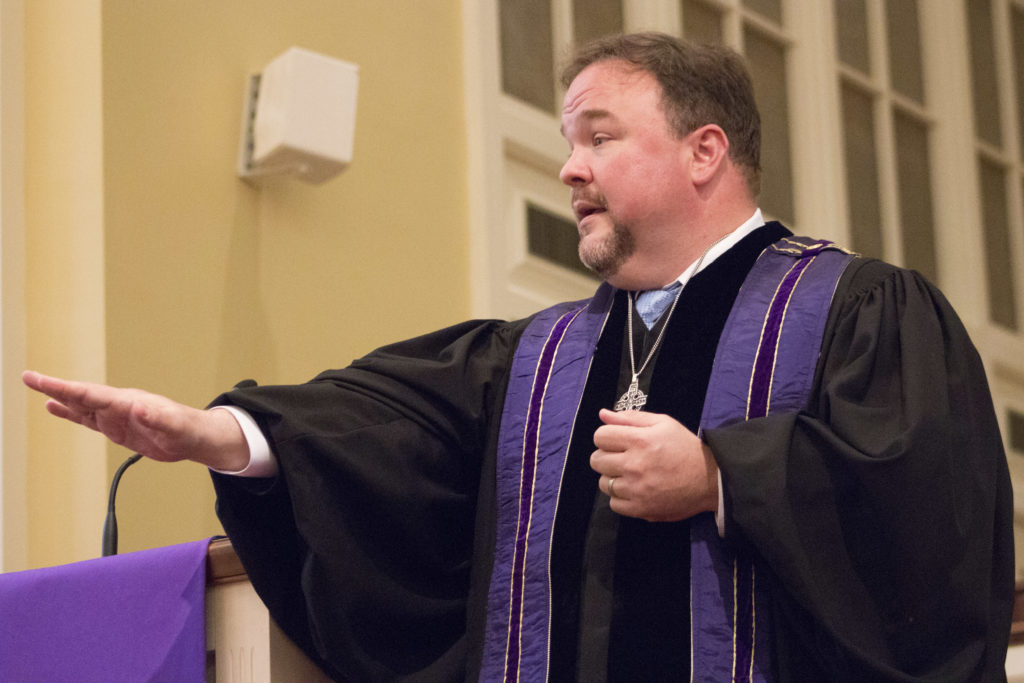
Jake Hall, pastor of Highland Hills Baptist Church, preaches to his congregation on Sunday, Feb. 18, 2018.
“Every Sunday I suit up, put on that stole and I’m on until the day is over, and experiencing transcendence is sometimes rare in seasons of pastoral life. But Scott’s song was about real life, real sin and the real redemption that comes with years. That was a singular moment for me. I had decided it was time for me to reach out beyond the circle of Highland Hills and to forge new friendships, though I didn’t yet know that would become a new partnership for me or for the church.”
The following day, Hall crafted an email to Evans and Griffith expressing his unique gratitude for 100.9 FM The Creek as well as his vision for a show that would engage that tender space of music and meaning in the “Christ-haunted South.” Quotation of central Georgia’s own Flannery O’Connor was all it took to get a lunch meeting, Griffith would later admit fondly. Yet Hall’s poignant humility and infectious grace — qualities that neither Griffith nor Evans were accustomed to in a pastor — would ultimately seal the deal for Gospel Gothic.
As Gospel Gothic found a foothold in Macon, the generous space Hall had offered himself in seeking new ground began to reflect around him, he says. Rather than recoil at Hall’s audacious enterprise, the Highland Hills congregation engaged the project with deep resonance and financial support, even producing the show’s executive producer Keith Gammons, who had perhaps become as restless as Hall.
“A kind of permission of the Spirit took over,” Hall explains, “and it couldn’t have happened without a church that was ready to try something new, without Keith Gammons, who after returning from a church hiatus to fight leukemia, needed something else to do, or without a lot of people at least seeing what could be and valuing the ‘what if,’ whether they understood it or not.”
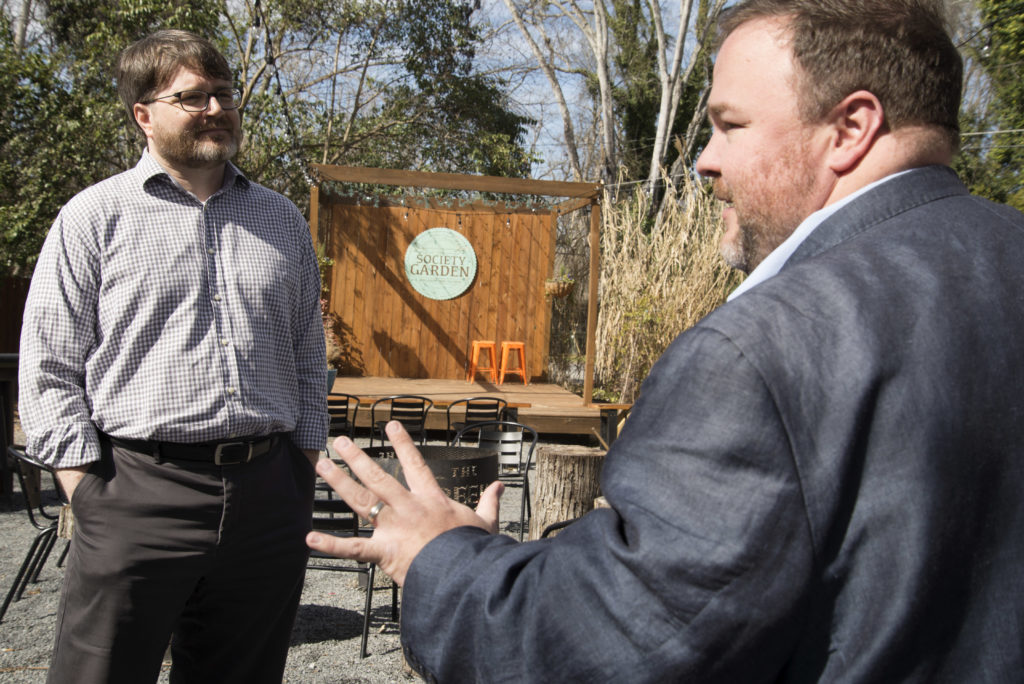
Keith Gammons, executive producer and music director at Gospel Gothic, and Jake Hall, host of Gospel Gothic, discuss future events at The Society Garden on Ingleside Avenue on Thursday, Feb. 8, 2018.
As Hall’s permissive spirit spread, Gospel Gothic began to cultivate a candid and generous table at which an entire downtown community could engage real faith, not to mention their often haunted histories with the church. By sharing level ground and being open to people’s doubts, skepticism or hostility toward the church, Hall says, he effectively became a pastor for those who were decidedly not looking for a pastor. And at the end of the day, he adds, friendship became a holy gift that ultimately bulldozed the wall between ‘sacred’ and ‘profane,’ ‘church person’ and ‘non-church person,” not to mention demolished Hall’s long-held desire to be the “expert behind the podium.”
“That’s not what pastors do and it’s not who I am,” Hall says. “I am much more passionate about exegeting the human document, of parsing out what’s behind someone’s story than I am about returning to the marginalia of sacred texts.”
Since Gospel Gothic’s inception in 2016, the Highland Hills congregation has journeyed alongside Hall in discarding attractional attitudes about church and sought solidarity with the larger community. Yet, there is nothing unique to Macon — even 100.9 FM The Creek — that makes such a shift any more accessible than in other communities, Hall says. Breaking free from that posture does not mean the adoption of some other unique strategy, he explains, but instead simply heeding the restlessness in you that craves real life, real sin and the real redemption that comes in joining the community around you.
“If I’m not making a difference in my community in a peculiar and particular way, using the gifts that I have, I’m not living a life that is life-giving to me” – Jake Hall
“If I’m not making a difference in my community in a peculiar and particular way, using the gifts that I have, I’m not living a life that is life-giving to me,” Hall says.
“Being a ‘good Baptist pastor’ and climbing the ladder in the Cooperative Baptist Fellowship is not enough for me, and that pedigree is no longer a measure of my success. That meant silencing those voices and expectations of being a ‘professional minister’ and doing things a certain way and giving myself permission to do what I’m good at, where I am. We’re called to share the good news, but that looks more like sitting down at a table with someone, asking for their unvarnished opinion and listening. For my own sake and sanity and calling, I had to make those connections, and I am very thankful that I’m in a community that sees that as a part of what we do together. I feel more alive as a minister because of it.”
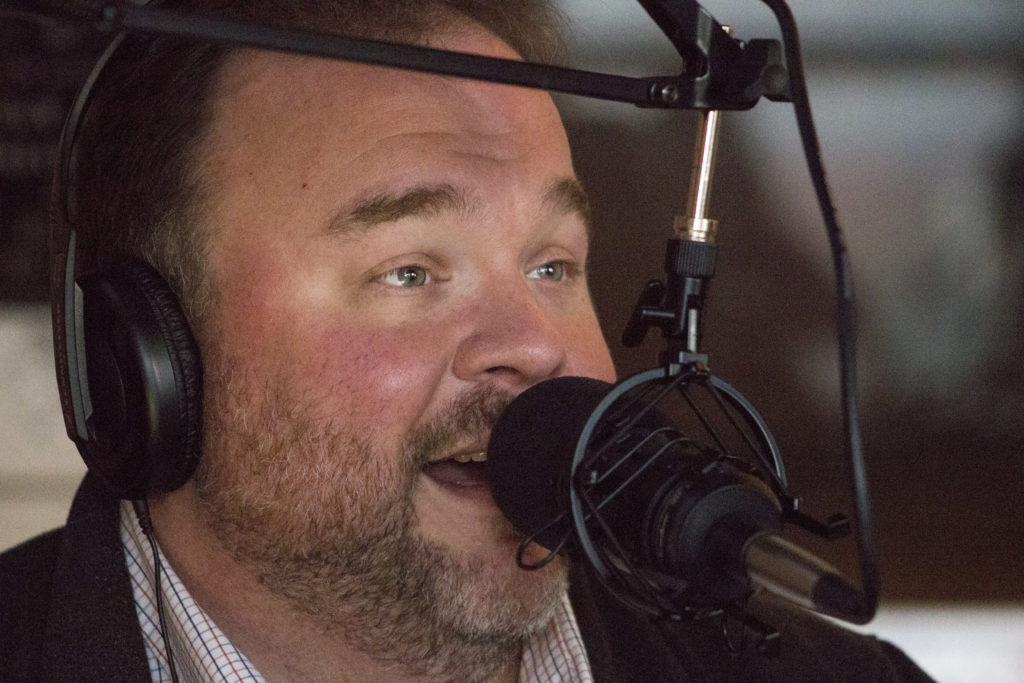
Jake Hall, pastor of Highland Hills Baptist Church, records this week’s episode of Gospel Gothic for The Creek 100.9 FM on Wednesday, Feb. 7, 2018 in The Creek’s recording studio. Gospel Gothic is hosted by Jake Hall and discusses faith through the theme of Americana music.
View more in the Jake Hall: Gospel Gothic Series
The Christ-Haunted Hosts of Gospel Gothic
For Macon community, Americana music is holy liturgy
Photo Gallery: Jake Hall and Gospel Gothic in photos
Video: How Gospel Gothic got its start
Video: Jake Hall remembers most profound moments on Gospel Gothic
Video: Why use music for outreach in Macon
Video: How the magic is made at Gospel Gothic
Related Commentary:
Signature Ministries: “The art of human contacts” by Bill Leonard
Related audio:
Listen to their archives or explore the show on the Gospel Gothic site.
This series in the “Signature Ministries” project is part of the BNG Storytelling Projects Initiative. By studying ministers or churches who practice “Signature Ministries,” we learn from communities who respond to the needs around them, engaging and energizing members in specific ministries that turn them outward on the world. We will specifically profile ministers who lead through their passion and zeal for an interest or a skill that connects with their community outside of the role they would normally play as pastor, leading their congregants to see Christ in others and reaching the needs of the world around them.
Seed money to launch our Storytelling Projects initiative and our initial series of projects has been provided through generous grants from the Christ Is Our Salvation Foundation and the Eula Mae and John Baugh Foundation. For information about underwriting opportunities for Storytelling Projects, contact David Wilkinson, BNG’s executive director and publisher, at [email protected] or 336.865.2688.

